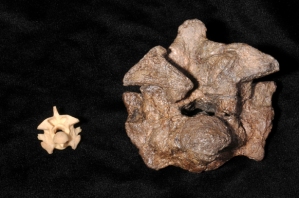Here’s some stuff I’ve been reading over the last month or so:
- Babel’s Dawn discusses Michael Arbib’s paper, Invention and Community in the Emergence of Language: Insights from New Sign Languages.
- Over at Neurophilosophy there is an overview of a fascinating paper on the Universal Grammar of birdsong (also check out my comment, it’s the first one under JW).
- John Hawks talks about some of my favourite topics: learning, population size, and modern human behaviour.
- The recent resurgence of the Sapir-Whorf hypothesis and Lera Boroditsky are the topics of discussion over at Mind Hacks.
- Deric Bownds’ MindBlog mentions the “origins of altruism toward one’s own social group and the emergence of cultural complexity“.
- Evolution can occur in less than 10 years… In guppy fish.
- Researchers at Brown find: “A front portion of the brain that handles tasks like decision-making also helps decipher different phonetic sounds“.
- And lastly, Dienekes’ anthropology blog discusses a paper that investigates the role of drift and selection in the shaping of human skulls, concluding “that neutral processes have been much more important than climate in shaping the human cranium”.
Okay, so that brings you up to date with my reading from May through to July. Next round up will cover August. How fascinating :-/


